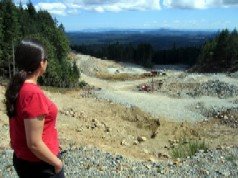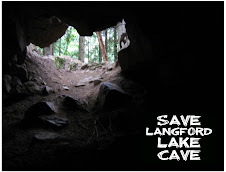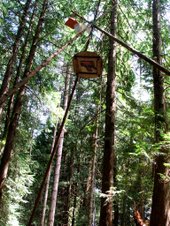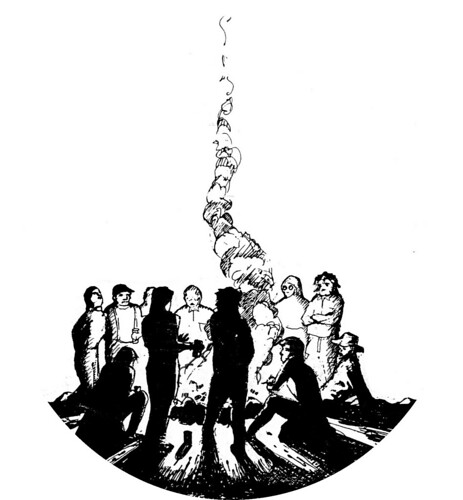 For almost two years, we’ve documented and publicized the impact of resort development on wetlands, rare species, watercourses, recreation sites and First Nations heritage.
For almost two years, we’ve documented and publicized the impact of resort development on wetlands, rare species, watercourses, recreation sites and First Nations heritage.
As a result, land-use decisions on southern Vancouver Island face greater demands for due diligence on environmental preservation and democratic accountability, among other long-term effects of the campaign. The fallout is still coming down on the interchange, First Nations sites, and future resort development.
In August, Langford residents reported on changes to the city’s plans for the Bear Mountain Interchange (also known as the Spencer Road Interchange). Construction of the interchange connecting the Trans Canada Highway and Bear Mountain Resort commenced and then stalled for lack of funding. The project is now going forward (with TD Bank’s funding, which has angered many), but it appears to be scaled back drastically. The overpass will be built, but cloverleaf on-ramps are on hold until the second phase of construction, beginning at an unknown date in the future. It is still possible that some of the groves of Garry Oaks and wetland habitat for Red-Legged Frogs may be spared, depending on the municipality’s future direction on environmental policy.
It seems clear that well-documented public outrage, coupled with financial agencies’ concerns about Langford’s process and diligence, contributed to the downsizing of the interchange.
Meanwhile, a movement to strengthen First Nations heritage protection has led to a historic agreement in the Gulf Islands. The agreement may eventually extend to places like Langford, where Bear Mountain development and interchange construction irreparably damaged Langford Lake Cave and Spaet Cave, despite legislation and government agencies dedicated to preserving cultural sites. The loss of the two caves and nearby indigenous burial grounds shocked the conscience of the community and especially angered First Nations people across British Columbia.
Now, according to the Victoria Times Colonist, “the Islands Trust council has approved in principle a protocol developed with the Hul’qumi’num Treaty Group that goes far beyond the protections offered in the provincial Heritage Conservation Act and could become a template for similar agreements all over B.C., according to archeologist Eric McLay.”
“Such an agreement could have prevented the destruction of spirit caves at Bear Mountain resort.” (Times Colonist, Sept. 17, 2008)
Our report The Langford Rebellion recounts how municipal plans to pave over the caves and heritage sites triggered a groundswell of criticism that grew to include a wide range of other public policy and environmental issues.
We have done much more than shine a light on conservation concerns. We have contributed to public policy changes that will reverberate far beyond Langford for many years to come. Thank you for speaking out, and stay strong – there is much more to do!
And don't forget to Boycott Bear Mountain!
Small Victories
Subscribe to:
Comments (Atom)






